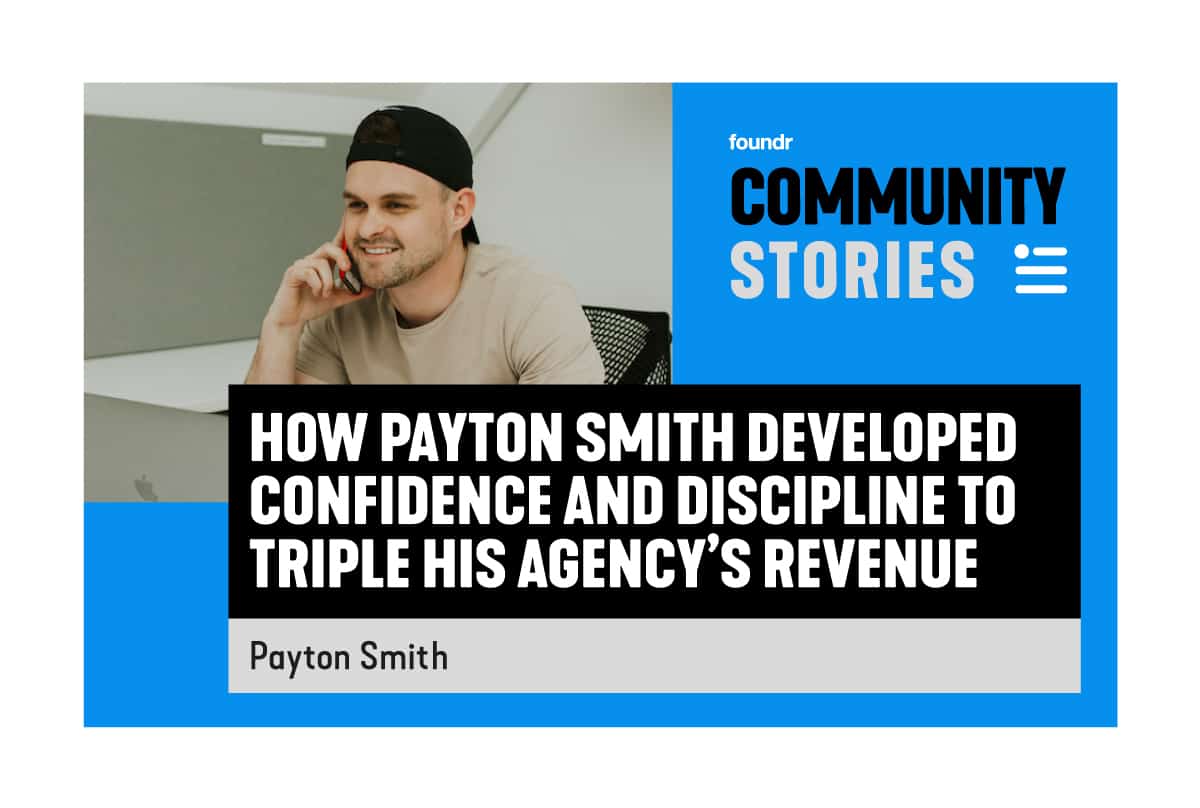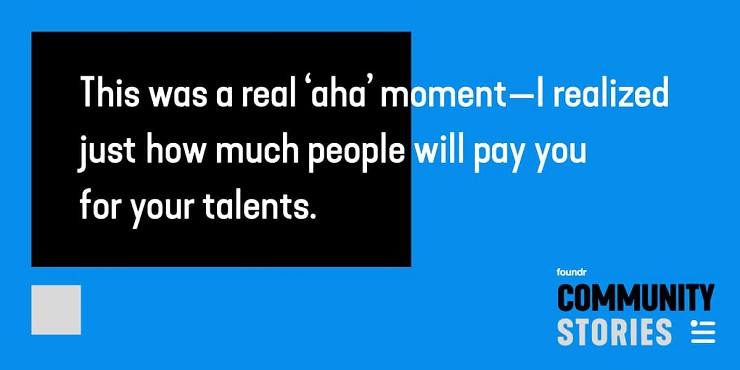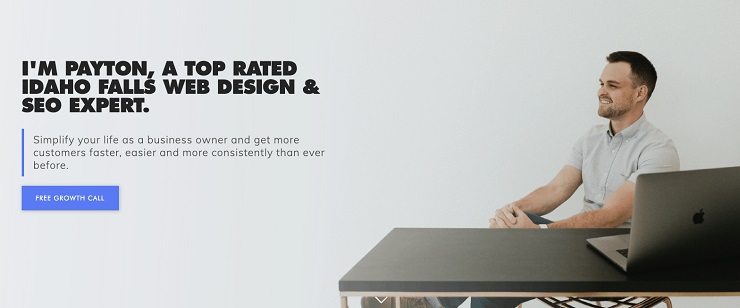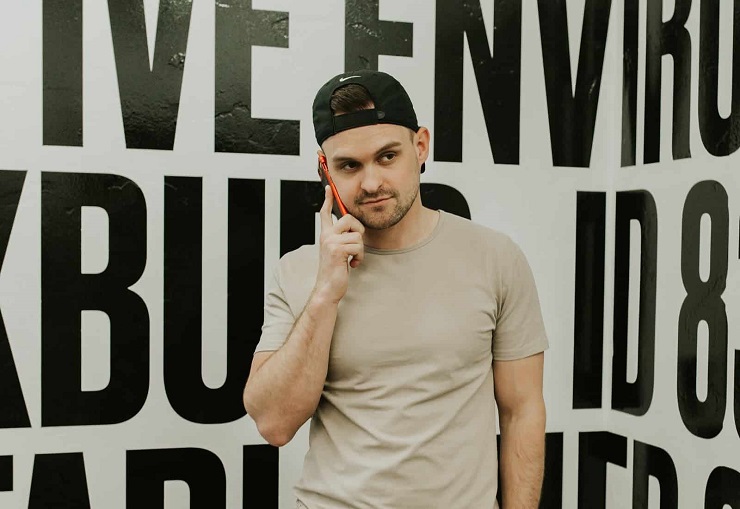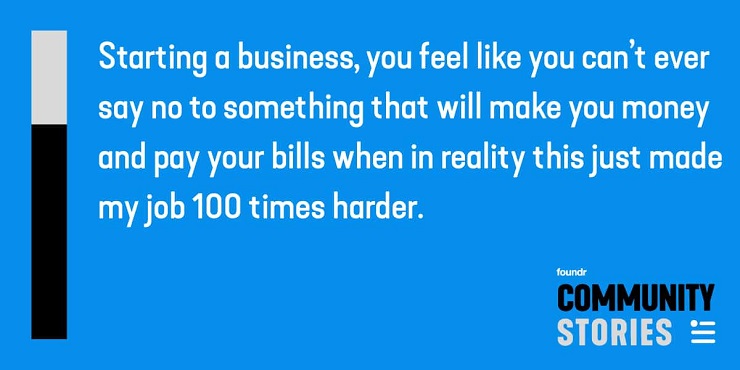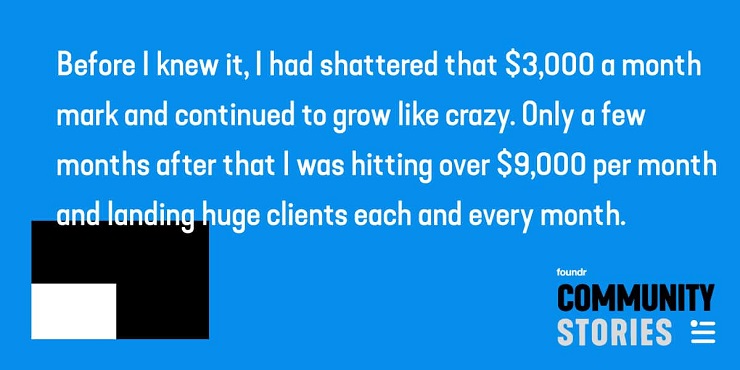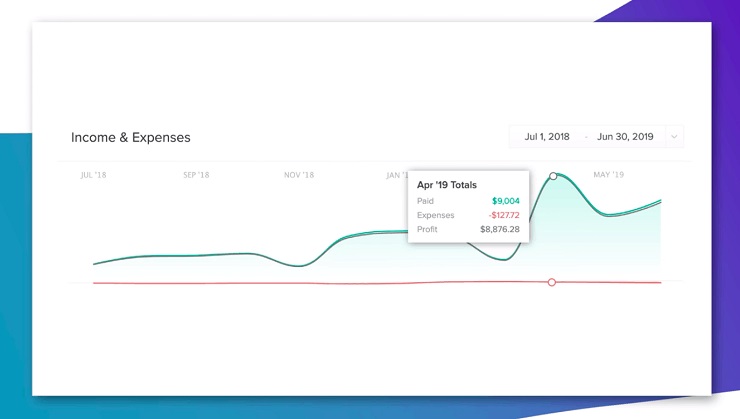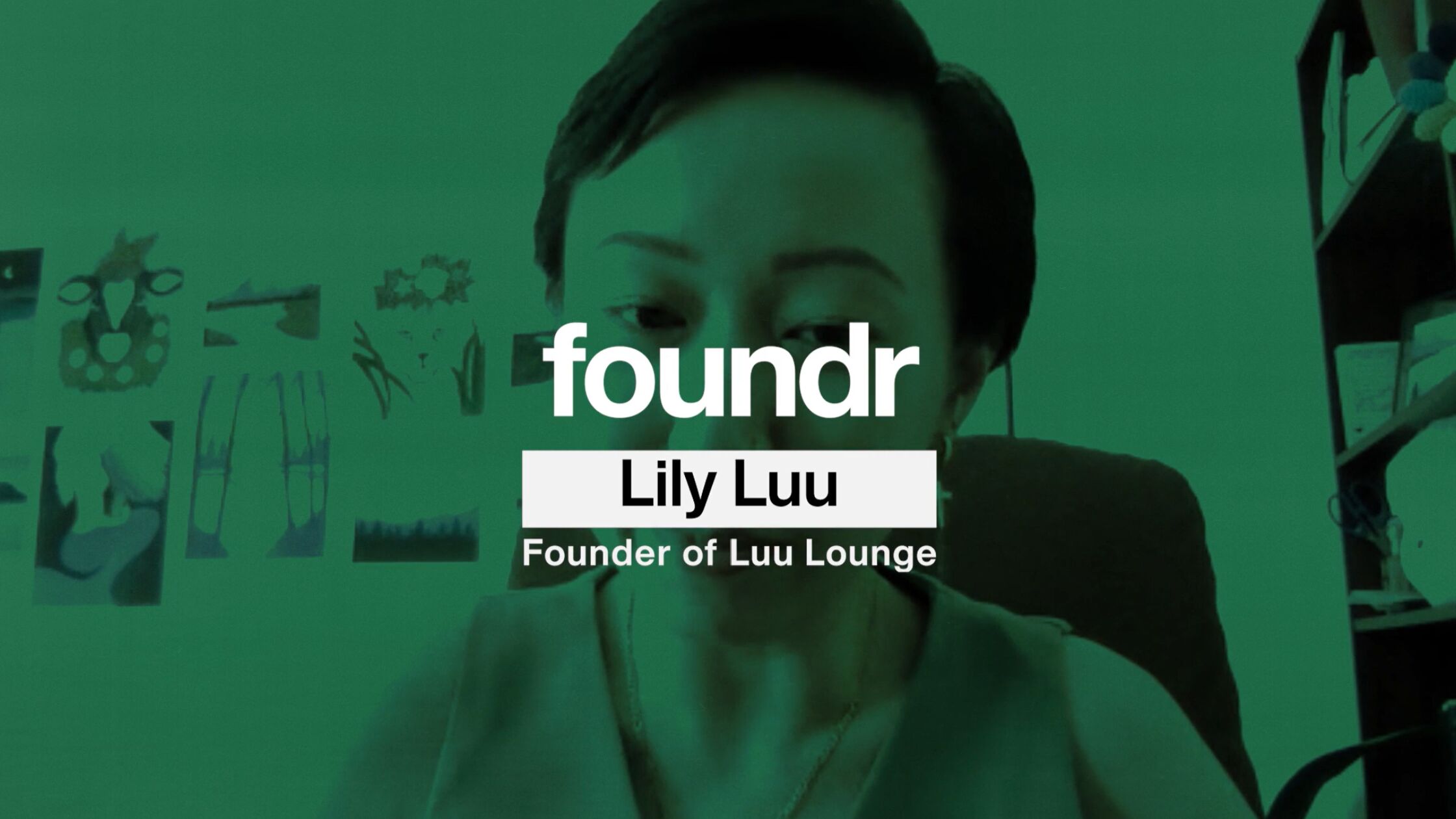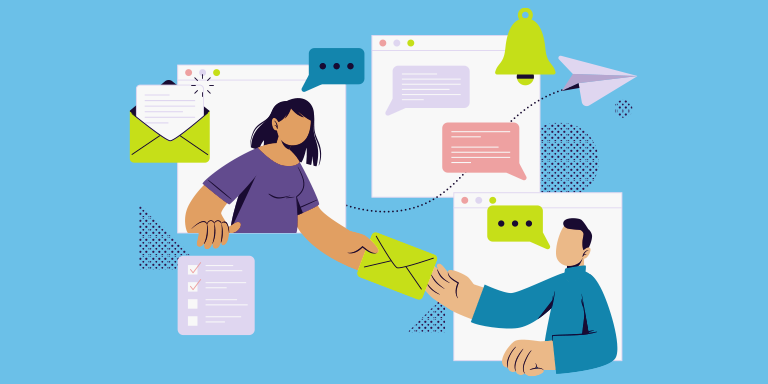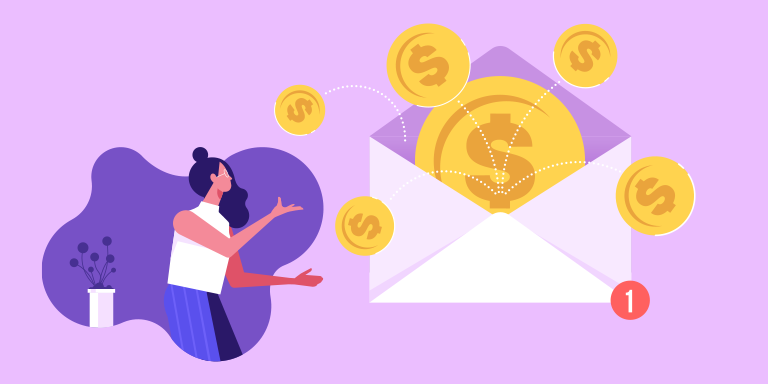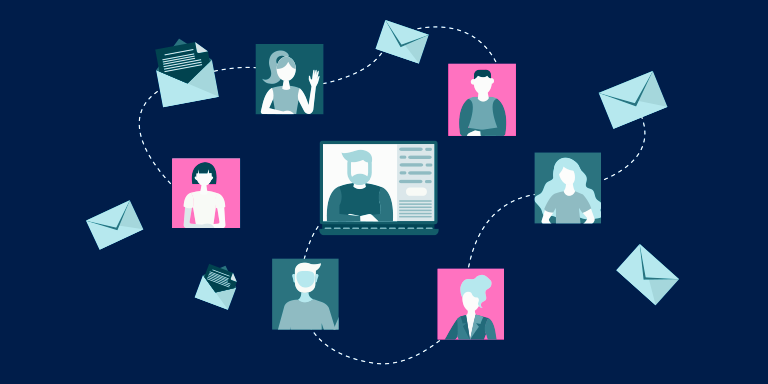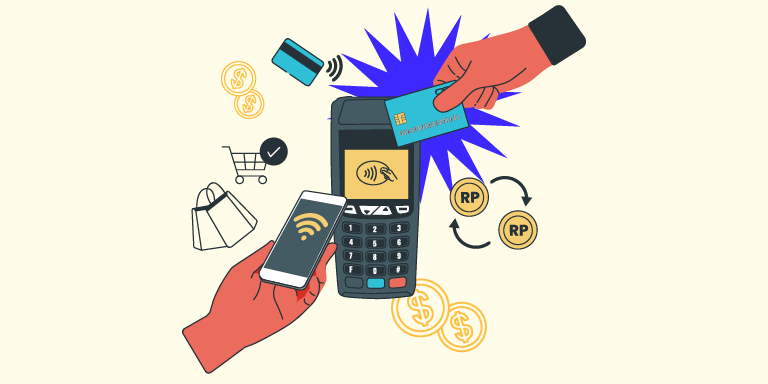Sometimes you need more than knowledge. You need inspiration. That’s why we started Foundr Community Stories, profiles of our very own readers and online course students—people just like you—who have inspiring personal success stories. Today’s profile: Payton Smith.
Getting a business to profitability is a critical milestone, but it’s not enough. You don’t just want to make a half-decent living—you want a business that can grow and thrive.
Payton Smith, a web designer, SEO expert, and founder of Pait Digital, faced this exact dilemma about a year ago. He was making enough money to call his business a success, but was just getting by. His agency’s growth had hit a plateau that he needed to get past.
For the following 12 months, he worked hard to grow his business through learning and disciplined action, and ultimately broke through that plateau, tripling his revenue in the process.
If your consulting or freelancing business is also facing some challenges and you don’t know what to do, keep reading. We’ll share Payton’s story so you can get inspired and apply some of his same ideas to your own business.
How Pait Digital Got Started
There are people who find their callings early in their lives. By the time they reach college, these kids know exactly what they’ll do for the rest of their careers. Most of us do not have such luck.
Payton was definitely in the latter category. Growing up, he worked summers as a door-to-door salesman, but didn’t know what he wanted as a full-time career.
“It felt like everyone around me had things figured out, but I just couldn’t find anything that I wanted to commit my whole life to,” he said. “This made school really difficult for me. I was, for a lack of a better term, spinning my wheels.”
Eventually, he took a leap and chose to major in web design and development. Payton’s entrepreneurial drive eventually kicked in and after some time, he was dabbling in affiliate marketing and ecommerce. But he had bigger aspirations.
It was at this time that I finally wised up and realized, I don’t have to sell someone else’s junk online to make a living. I could sell my talents. I was a gifted web designer and a pretty darn good salesman. This had to be what I was meant to do.
He started looking for freelance design jobs, and soon after, closed his first client for a logo design, charging $1,300. “This was a real ‘aha’ moment—I realized just how much people will pay you for your talents.”
Slowly but surely, he kept growing his skills, learning business web design and SEO beyond the more basic design work he started with. He was soon able to show real ROI to his clients because, as he put it, “I was actually generating business for them.”
Freelancing is a rewarding, easy way to generate a side income, but it can be tough to turn it into a decent, reliable living. He knew that in order to take things to the next level, he had to start his own consulting business. He decided to quit his sales job and start Pait Digital.
He was undoubtedly scared at first, because he felt under-confident in the results he could bring his clients. He knew he had the skills, but was less certain about the results.
He would eventually land a few small clients, which would allow him to “build not only my portfolio but the confidence in the work that I was doing.”
Looking back, Payton recalls:
Getting to that $3,000 per month mark was definitely difficult. I feel like I didn’t have my packages or process figured out yet and because of that I felt like I was nearly at maximum capacity with the few clients I had. This made it a constant, 100% hustle to find enough clients to hit $3,000 in monthly revenue.
Challenges Payton Faced in His Journey
Making the jump from an employee to a full-time consultant is scary. One common struggle is that first-time entrepreneurs may have the talent, but it soon becomes very clear that it takes more than just the right skills to succeed on their own. It takes strategy and business smarts.
When Payton started growing Pait Digital, he found himself facing two of the most common problems most new consultants face.
First, he was saying yes to every project and every client. Besides making his job harder by diluting his focus, working on different unrelated projects meant that he had a harder time producing results for his clients.
I was trying to offer too many different services to too many different types of businesses and because of that, there was a huge learning curve every time I brought on a new client. Starting a business, you feel like you can’t ever say no to something that will make you money and pay your bills when in reality this just made my job 100 times harder.
He eventually found himself with a lot of work without being able to generate substantial income to justify the effort. He then realized that he needed to find some clarity in his business.
“I quickly found that I needed to establish who my ideal client was and what process I would go through to get the results and then just make sure I only take on those types of clients.”
Besides his lack of focus, the other great challenge he faced was a lack of processes, the standardized set of actions companies use to carry out their activities. Payton saw himself spending too much time on tasks that weren’t directly related to his income-generating skills, something that frustrated him deeply.
I was spending way too much time on proposals, agreements, collecting content from clients, and sending emails. Every time I had to perform one of these tasks I was starting from scratch and this took away time that I could have spent working on client work or finding new clients.
When getting started, it’s easy to overlook all of these issues and focus on closing as many clients as possible. But slowly, these inefficiencies add up to a point where you spend more time on non-billable tasks, instead of working on the things that matter.
I found that I was far more productive when I went through the same process with every client from start to finish, including pre-written and automated emails, planned follow-ups, and a strict schedule.
How Payton Tripled His Agency’s Revenue in 12 Months
At this point, Payton was feeling the weight of his own business. In one sense, he had “made it.” He had his own business, but things were not going how he had hoped.
Payton said a major turning point in breaking through his plateau was enrolling in one of Foundr’s online courses, which helped him make some deep foundational changes in his business.
I learned to streamline my business and start focusing on residual work, rather than just one-time website builds. I started focusing on the clients I already had, and what I could do to get them to stick around and pay me month after month.
These changes not only helped him reach the level of income he was after when he first started Pait Digital, but he also found other secondary benefits in his mindset.
I saw my confidence grow as I honed my skills and was able to provide better results for clients. This confidence helped me reach new clients and also get referred by my current clients, which helped me grow even more rapidly.
This transformation may seem sudden, but in reality, it took him months of hard work to hone his business.
“I had to take the time to really decide who my ideal client was, what services I wanted to offer and how to get awesome results for people. Then I just had to take the time to implement and perfect those things,” Payton told us.
After he became clearer on his audience and his processes, he discovered he had broken through to another level.
“Before I knew it, I had shattered that $3,000 a month mark and continued to grow like crazy. Only a few months after that I was hitting over $9,000 per month and landing huge clients each and every month.”
How to Stay Motivated as a Consultant
Working for yourself is a wonderful feeling, especially if you’ve always worked for a boss. But after a while, you realize things aren’t as ideal as you had dreamed. You work alone for hours on end without the guarantee of a paycheck at the end of the month, so the ability to stay motivated is critical.
Payton’s first few months were difficult, but he stayed focused on developing the right habits—a set of actions he could internalize and follow through, regardless of his motivation. In doing so, his productivity “is not based on how emotionally motivated I am feeling, but rather how well I have planned and executed my plan.”
He also found that developing clarity on the goals he was pursuing helped him stay on track and avoid the emotional rollercoaster most first-time entrepreneurs go through.
“Setting goals that I know will get me and my family to where we want to be in six months, one year, and five years. This is what motivates me. I do it all for them.”
Now that he’s found a clear system for growing his agency, he finds himself excited about what the future holds for him.
With a good lead generation and sales system in place, he’s hoping to exceed six figures in revenue for the first time. What’s more, he’s looking to hire his first employee to help him manage his operations—something that will allow him to find new and even bigger clients.
As far as financial goals, next year (my second year of business) I have a “die goal” (bare minimum goal) of $150,000 but am pushing to clear $200,000 in revenue. This isn’t just a pipe dream, but is completely achievable based on the growth I have been seeing. Within five years, Pait Digital will be a multimillion-dollar agency servicing clients all over the country.
Payton says, “As far as client goals, I want to help my clients generate, on average, 250X organic website traffic and over $1,000,000 (combined) in revenue from my SEO efforts.”
With this ambitious goal in mind, he knows he can command the revenues that will make his end goal of hitting the multimillion-dollar mark achievable.
Looking Back
Payton has made incredible strides. He’s not only a web design and SEO expert, he’s also more confident in his skills, something he really struggled with early on.
If I had to do it all over again, I would start with a more confident mindset. Starting my business, it took me a while to really feel comfortable calling myself an “expert” even though I was getting awesome results for people. I wish I could have gone back to the clients I lost because I was “wishy-washy” and just closed them with confidence. The only thing holding you back from becoming a high-paid expert is yourself.
Payton believes that he owes a big part of his success to his education—both his college degree and ongoing education like Foundr courses. When I asked him what he’d recommend to new consultants who want to start their own businesses, he said:
Don’t be cheap when it comes to education. Don’t just throw your money at every online course you can find, but don’t ever let money get in the way of your education. Buy all the books you can. Read, read, read! Watch YouTube videos of people that have accomplished your goals. And find courses that can help take you to the next level. As a consultant, you work alone most of the time and it is easy to get in your own head. Outside education brings new perspective, more confidence, and a sense of camaraderie that you need to succeed.
One quality that so many of the consultants and former students we’ve interviewed share is humility. Many went from working 9-to-5 jobs, to living in tiny apartments, to finally crushing their goals. Payton is no exception.
When I started my business, I was in a small, two-bedroom apartment with my wife and baby boy. I had no office, so I was working on the couch while my son crawled all over me. Fast forward to now, we just closed on our first home and I have my own office I can work out of. My family has more space and we are able to live the life we want right now. My life has changed completely since starting my business.
Payton took his existing skills and with a lot of hard work, set down the foundation for a successful digital marketing consulting business. Thanks to his education and commitment, he’s making it happen, just like so many of the other students we’ve met in the Foundr community.
Now let’s hear from you:
Are you thinking about starting your own consulting business? If so, what do you think is stopping you from doing so?
